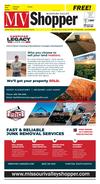091316_YKMV_A15.pdf





shop online at www.missourivalleyshopper.com
September 13, 2016 • Page 15
fall home improvement & car care
Make the Most of Mulching
Lawns and gardens can often benefit from
the laying of mulch. Mulch serves various
purposes in lawns and gardens, and many
experienced lawn and garden enthusiasts
lay mulch to ensure their properties make it
through spring, summer and fall unscathed.
First-time homeowners with little or no
landscaping experience may not understand
the benefits of mulch, which can be used to
strengthen soil and protect properties from
the elements.
What is mulch?
Mulch refers to a material spread around
or over a plant to enrich and/or insulate its
soil. Many homeowners prefer mulch made
of wood chips, which is both effective and
readily available. The U.S. Environmental Protection Agency notes that organic mulches,
which include leaves, wood chips, compost or
grass clippings, can be used by homeowners
who want to develop eco-friendly landscapes.
Why Mulch?
Mulching can benefit plants around a property in various ways. Many people lay mulch
because the mulch helps soil retain moisture
in the summer, when temperatures tend to be
at their hottest. This can help plants survive
summer heat waves.
Mulch also can be used to suppress weeds.
Weeds, which steal moisture plants need to
build strong roots and survive summer, need
light to grow. When laid correctly, mulch deprives weeds of the light they need to grow.
Organic mulches can even provide homes
for crickets and a type of beetle that feed on
weed seeds.
Mulch also can deter harmful pests depending on the type of mulch homeowners choose.
When purchasing mulch, homeowners will
have to choose between the aforementioned
organic mulch or man-made mulches, which
may be made of plastic or rubber. While manmade mulches may repel pests, they also can
have adverse effects. Plastic, for example, can
heat up in the summer and cause plants to
burn. Certain organic mulches can repel insects that can threaten plants. That’s because
the majority of organic mulches increase
the amount of beneficial bacteria in the soil,
and they also increase the presence of helpful insects that do not pose a threat to plant should know that they may need to employ
life. Those helpful insects help keep harmful organic insecticides to combat their unwantinsects at bay. Compost is a type of organic ed guests.
mulch that may attract harmful insects. While
that does not mean homeowners should shy
away from using compost as mulch, they
Mulch is a potentially valuable tool homeowners can use to improve the look and
health of their properties.
Choose the Right Tire for
your Vehicle and Season
Motorists spend hours behind the wheel and spend lots of money on maintenance to ensure
their vehicles are in top working order. But tires are one area of maintenance that often goes
unchecked, even by the most diligent automobile owners.
Tires undergo a lot of wear and tear, which only highlights the importance of proper tire
maintenance. But many drivers do not give tires a passing thought until there is a problem,
such as a flat or excessive wear. Also, some drivers think that all tires are the same, failing to realize that the kind of tires vehicles need depends on various factors. In addition to the size and
type of vehicle, drivers should consider the type of driving they do and the driving conditions
they routinely encounter before choosing tires for their vehicles. Many vehicles come off the
lot with all-season passenger tires because these tires are among the most versatile. However, if
you live in a particular climate or do a lot of driving that requires specific traction or maneuverability, all-season tires may not be the best bet. The following are descriptions of common tire
types and the conditions in which they might make the best fit.
All-Season
Replace existing wiper blades at the beginning of each winter so driver visibility is not compromised.
Prepare Vehicles for Harsh Weather
As the seasons change, motorists must take steps to safeguard their vehicles, especially
when the season changes from fall to winter. Each winter, many vehicles are subjected to subzero temperatures, snowfall and icy roads, and such conditions can take their toll on vehicles
over time. Taking steps to prepare vehicles for winter weather is a vital step that can make
cars and trucks safer for drivers and their passengers.
Battery
Old batteries should be replaced before winter begins. Without a strong, properly functioning battery, engines cannot turn over. Most batteries last between three and five years.
However, extreme cold can compromise batteries, especially those that have been around
awhile. Batteries are made up of acid and water, and cold temperatures can freeze the water,
thereby affecting battery performance. According to AAA’s Automotive Research Center, at 32
F, the average battery loses 35 percent of its strength.
Newer batteries can be protected by starting the vehicle each day to warm up and
recharge the battery. Let the car run for at least 10 minutes if you cannot take an extended
drive.
Exterior maintenance
Keeping a car waxed and sealed can help maintain a durable exterior finish. This includes
not only the paint, but the rubber and vinyl parts of the car’s exterior.
Winter is a good time to switch to a heavy-duty synthetic wax that can shield against water
and road salts. High-quality sealants can be used on bumpers, trim and rubber door seals
as added protection. Speak with an automotive retailer or even the car dealership if you are
unsure which products will make your car’s parts most durable for winter weather.
Do not stop washing your car just because the weather is cold. Slushy, wet roads and
snow-melting salts can speed up the formation of rust or other decay on the undercarriage of
the vehicle. These materials will need to be periodically cleaned off. Flush the underside of
the vehicle whenever possible, taking advantage of any dry, slightly warmer days.
Tire pressure
According to the automotive retailer Pep Boys, vehicle tires lose a pound of air pressure
for every 10-degree drop in temperature. Many modern cars will alert to changes in air pressure, and drivers should be diligent in maintaining the proper tire pressure. Fuel economy as
well as handling ability can decline when tires are not inflated properly. Tires can be refilled at
many gas stations for little cost.
Wipers
Visibility is key in hazardous weather conditions, and keeping the windshield clean is a
priority. This means ensuring there is enough windshield wiper fluid in the car and that it is a
product that will not freeze.
Wiper blades can freeze and crack in the winter. Older blades may be more susceptible to
damage. It’s a worthy investment to replace existing wiper blades at the start of each winter.
When vehicles are parked, pull the wipers off of the windshield to safeguard them from sticking and cracking.
Cold weather requires drivers to amp up their vehicle maintenance routines. Consult with
a mechanic or automotive retailer for more ideas and products that can help your vehicles
operate safely and efficiently this winter.
Hartington Tree LLC
Tree Trimming, Removals & Transplanting
Trees
for sale:
EvErgrEEn • ShadE
ornamenTal
FALL IS A GREAT TIME
FOR PLANTING!
Yankton 605-260-1490
Hartington 402-254-6710
Serving Southeast SD & Northeast NE
Kent & Kyle Hochstein • Licensed Arborists
www.hartingtontree.com
All-season tires provide all-season versatility, good wear and ride comfort. They can be dependable tires and offer light snow traction as well.
All-season tires provide adequate protection in many conditions, but do not offer specific
benefits in any one area. They’re likely to be satisfactory for a vast array of drivers. All-season
tires are typically offered in touring and passenger types. Touring will provide lower road noise
and better handing, while passenger varieties offer a smooth ride and longevity.
Summer Tires
Summer tires are designed to offer traction and maneuverability in warm weather. Orbital
grooves and complex treads maximize traction in hot, humid weather. If you live in an area
where the temperature is consistently steamy, summer tires may be a good investment.
Winter Tires
A safety precaution for many people who live where conditions often include snow, ice and
cold weather, winter tires can be lifesavers. These tires are designed using several different
types of rubber, and feature tread designs that maximize traction during inclement conditions.
Winter tires also come in various subcategories. Studdable winter tires provide the extra security of added studs to enhance traction on ice. Performance winter tires offer better dry road
handling, but traction on snow and ice may be compromised.
Performance Tires
Performance tires offer
a sports car feel. These are
meant for drivers who want
to feel the road and increase
low-speed traction. The higher the level of performance,
the increased level of handling and stability at high
speeds.
Truck Tires
Trucks, pickups and SUVs
also have a variety of tire
types. There are off-road varieties, which will offer an
aggressive tread design for
off-road traction and other
obstacles. Light truck tires
help provide durability and
traction. Specially designed
SUV tires may be large, but
can still offer comfort-focused applications designed
for on-road driving.
Drivers looking for better
performance from their tires
should speak with a tire retailer about the options available to them.
Make your spa
a part of your
daily personal
wellness program!
Stop in to see our wide variety
of Hot Tubs available for
every size & budget!
LEISURE WORLD, INC.
Spas • Swimming Pools • Saunas
1900 Broadway Ave, Yankton, SD • 605-665-1240
2500 S. 13th St., Norfolk, NE • 402-371-8425
w w w.leisureworldsd.com


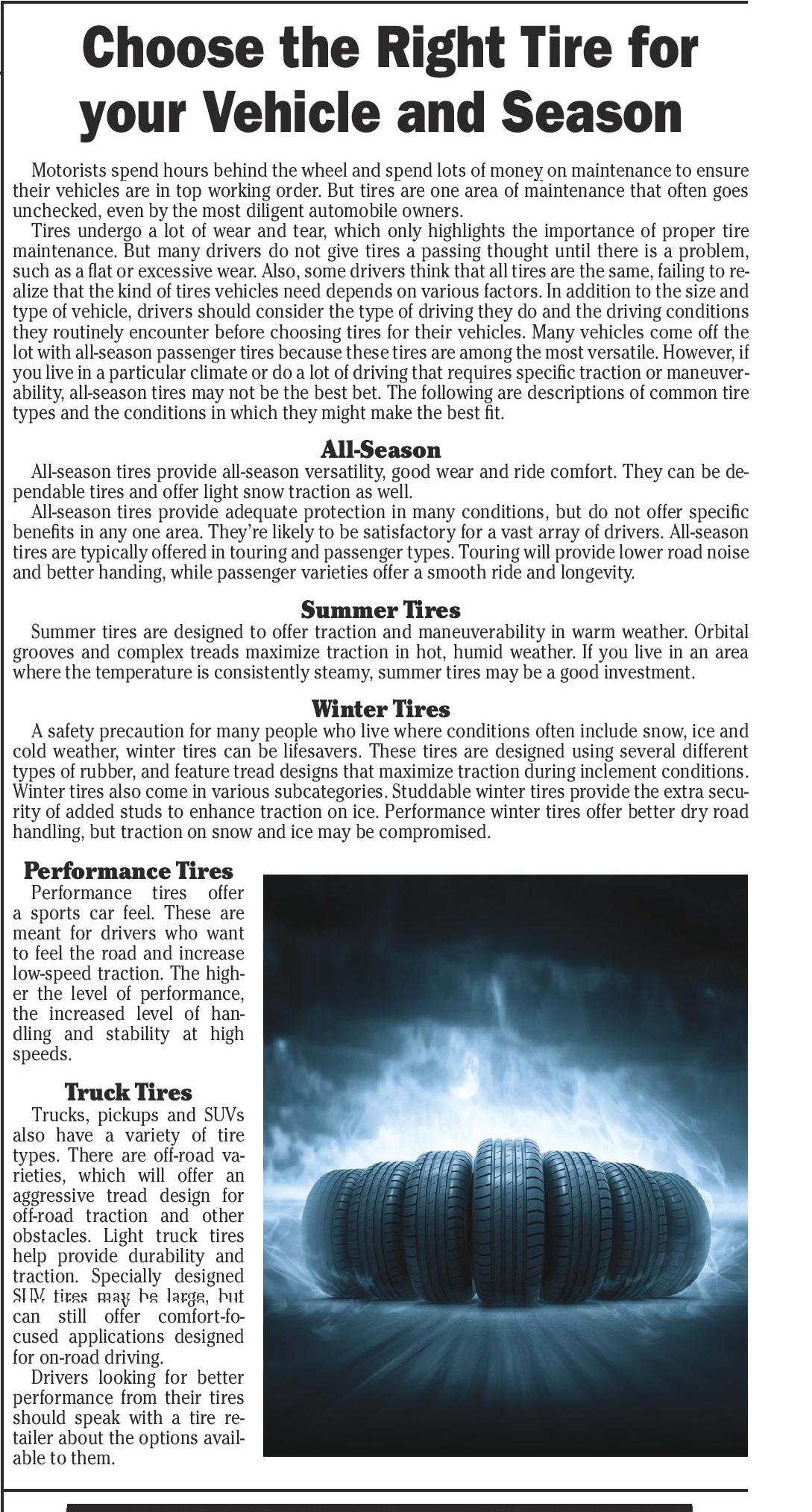
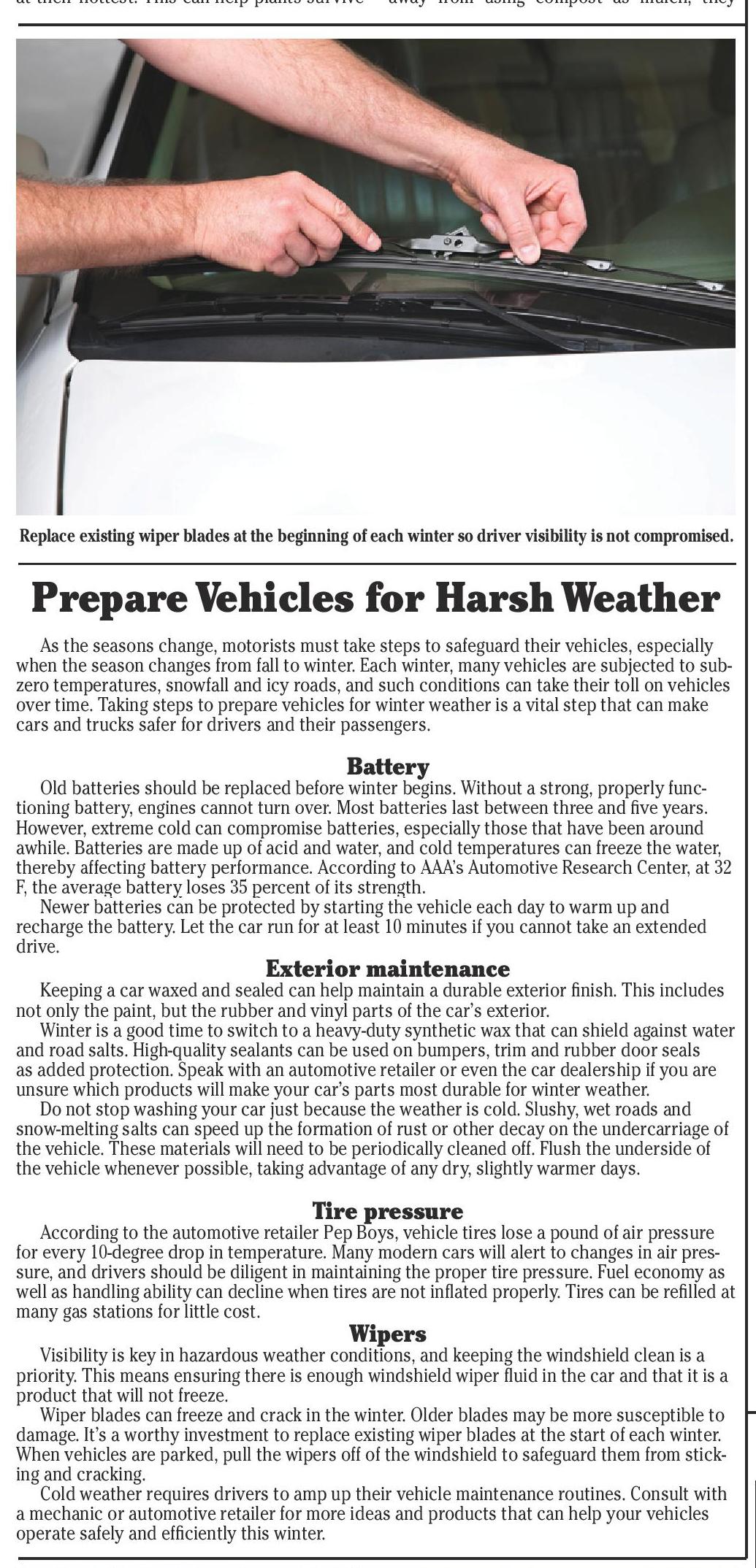
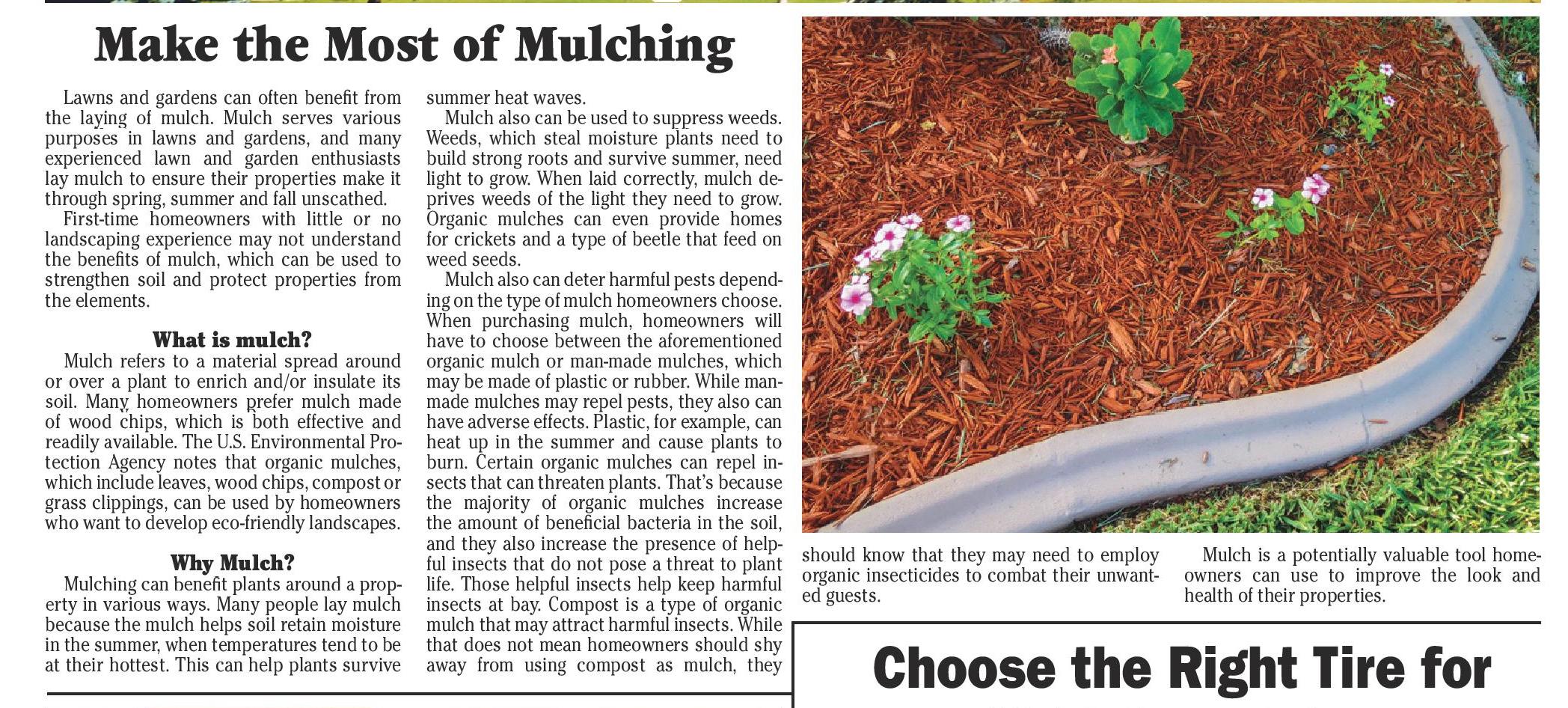


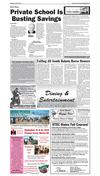
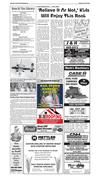
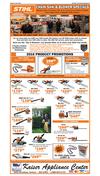
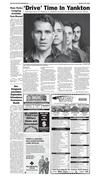
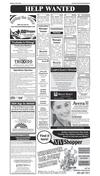
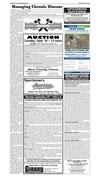
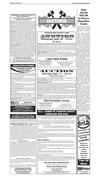
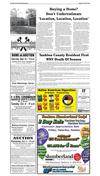
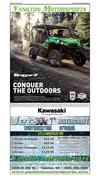
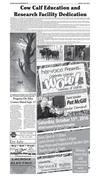
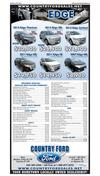
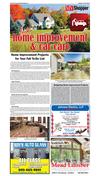
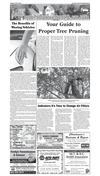
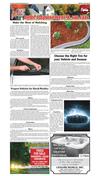
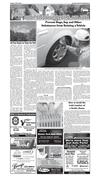
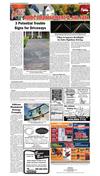

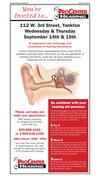

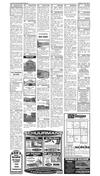
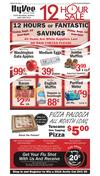

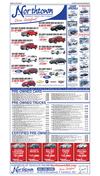
 Previous Page
Previous Page


